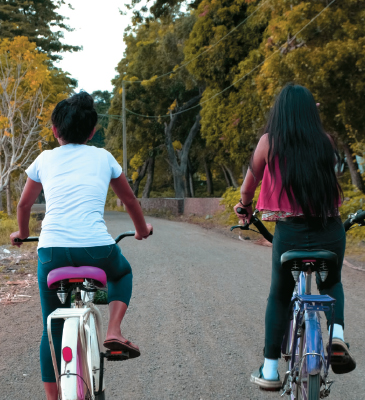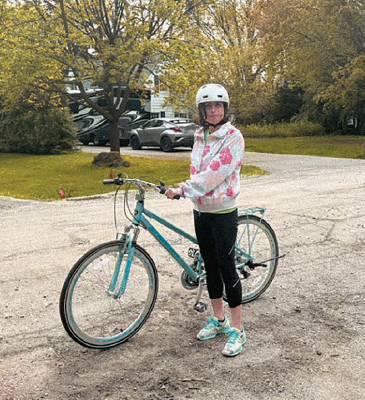John Schofield

What does the right to housing mean in Canadian law?
That’s one of the fundamental issues that Osgoode Professor Estair Van Wagner wrestles with in her research and teaching around the often controversial areas of property law and natural resources law.
Along with her work on homelessness and public space, Van Wagner also focuses her research on Indigenous land rights and property law.
Since the onset of the COVID-19 pandemic, she’s been a sought-after expert on the topic of homeless encampments, especially in the wake of a recent decision by an Ontario Superior Court judge rejecting the Region of Waterloo’s application to forcibly remove a homeless encampment from property it owns because of the lack of shelter space in the area.
Influenced by a series of B.C. court decisions starting with Victoria (City) v. Adams in 2008, Justice M.J. Valente ruled that the legal remedies sought by the Region of Waterloo violate the encampment residents' rights to life, liberty and security of the person under the Charter of Rights and Freedoms.
Van Wagner, who also serves as the co-director of Osgoode’s Environmental Justice and Sustainability Clinic, has overseen or contributed to research that takes a human rights approach to homeless encampments, including an analysis of the City of Toronto’s approach to the encampments during the pandemic and an overview of homeless encampments across Canada, prepared for the Office of the Federal Housing Advocate.
“My hope,” she says, “is that our research is useful to groups working on the ground to mobilize change at the local level – saying to municipalities that the way you’re dealing with homeless encampments is violating human rights and is a manifestation of our failure to realize the right to housing.”

Estair Van Wagner, Osgoode Hall Law School
“Ultimately,” she adds, “my research is really aimed at understanding how property and property law contribute to various forms of injustice.”
Under Canada’s colonial system of property law, says Van Wagner, the concept of ownership is often understood as exclusionary: “It’s our property, we own it, and we get to decide.”
“We need to really rethink that in order to put human rights and social justice and equity at the centre of our decision-making,” she says. “There needs to be a much more nuanced approach to how we share property.”
In this regard, said Van Wagner, there is much to learn from Indigenous legal orders and property relations, which go beyond ownership to encompass complex systems of obligations and responsibilities with regard to culture, spirituality, the environment and all that live within these ecosystems. One of her other research projects explores Indigenous jurisdiction and private property in the territory of the Hul’qui’min’um Treaty Group on Vancouver Island in British Columbia.
“Until we address the violations of the right to housing that are going on across the country,” she added, “we will continue to see court cases, but litigation is not the way this issue (of homelessness) will be resolved.”
So what about that right to housing?
While the individual right to adequate housing is recognized in the International Covenant on Economic, Social and Cultural Rights, to which Canada is a party, and in the federal National Housing Strategy Act, which came into force in July 2019, Van Wagner said Canadian courts have not recognized a right to housing under the Canadian Charter of Rights and Freedoms. However, some municipalities such as Toronto have recognized a right to housing in their policy documents.
“In my view, this is still an open question,” said Van Wagner, “because while we don’t at the moment have a court decision that says there’s a Charter right to housing there absolutely is a right to housing in international and now federal law and that should be informing government decisions at all levels.”
Read more

Meet York U’s Commercialization Fellows
Four budding researchers aim to bring innovative products to market

New organized research unit rides wave of early success, impact
A new Organized Research Unit (ORU) in its infancy but is already driving positive change

York health researcher brings a trauma-informed lens to use sport for good
How women find empowerment and independence on two wheels

York engineers develop mobile app to improve the safety of city cycling
Using tech to help take the yikes out of bikes
